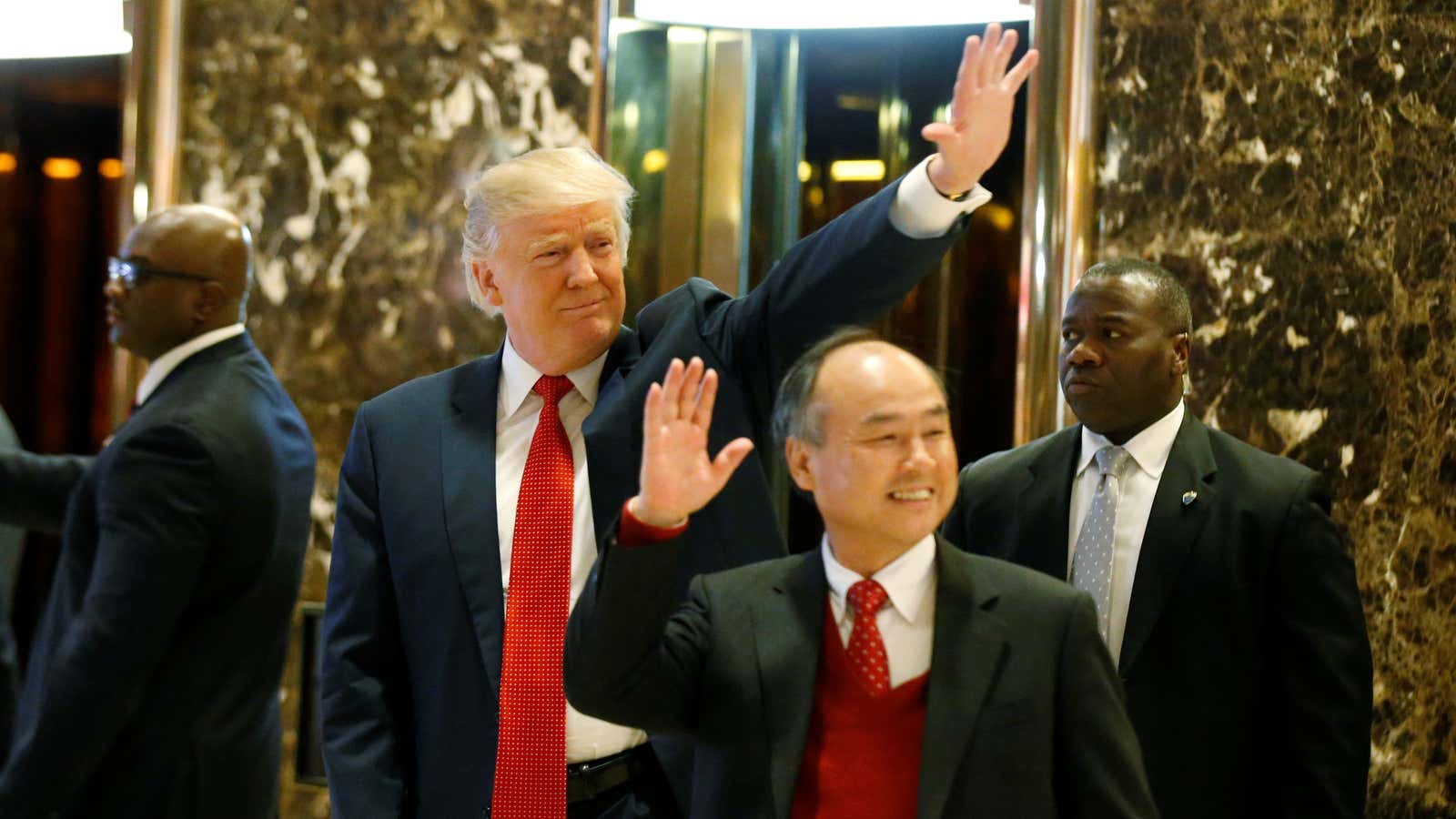Donald Trump’s celebration of Japanese telecom giant SoftBank’s proposed $50 billion investment in the US is a victory for robots.
The incoming president made the announcement after SoftBank CEO Masayoshi Son met him in Trump Tower and promised the company would also create 50,000 jobs in the US.
The early morning news was greeted in Japan with a mix of awe at the pure size of the proposed investment, and cynicism at why Son was pitching it. “The administrative official wants jobs, and the merchant wants power,” said one Twitter reaction.
The money Son is pledging would come from the SoftBank Vision Fund, a proposed $100 billion investment vehicle Softbank created in October and managed out of the United Kingdom. The fund’s stated purpose is essentially to bring about the Singularity. For those not up on the latest science-fiction-as-tech trends, the Singularity, as posited by futurist and writer Ray Kurzweil, is when artificial intelligence surpasses human intelligence and machines run our everyday lives.
The fund promises to fund a portfolio of tech start-ups over the next five years that will increase AI capability, and, in the words of SoftBank’s latest earnings presentation (pdf), create a world where the “future becomes predictable and is “without accidents,” where “life expectancy exceeds 100 years,” and where “all industries will be redefined.”
Some may think human enslavement by robot overlords. Son thinks business opportunity. Though SoftBank so far hasn’t announced any investments, it has already shown interest in developing AI. In September, it completed its $31 billion acquisition of chipmaker ARM Holdings, a company whose low-power chips are essential for any internet of things products.
Son said during SoftBank’s annual investors meeting in June:
Within 40 years, in every aspect of every industry—doctors, lawyers, designs, etc.—I’m expecting artificial intelligence will exceed the wisdom of human beings. That super intelligence is going to be installed in robots and will act by itself under its own will. They will exceed key people in small and large firms… Sometimes they can be smarter or brighter, so sometimes we should follow what they say.
Apart from the stated purpose of putting AI in charge of everyday life, there’s another potential complication. Any Vision Fund investment in the US would put the targeted tech firms on the tether of Saudi Arabia’s sovereign-wealth fund. While SoftBank has pledged up to $25 billion for the fund, its main investor is the Kingdom Of Saudi Arabia, which pledged up to another $45 billion. Saudi Arabia, however, is not known for the sort of transparency the tech industry boasts of fostering.
Still, there are a few reasons to take this all with a few shakers of salt. The Singularity may or may not happen. But promising $50 billion is one way SoftBank, which owns telecoms provider Sprint, can butter up an incoming president whose administration may prove more amenable to Son’s failed efforts to buy another mobile provider, T-Mobile.
Son dropped the proposed merger in 2014 after US regulators pushed against it, but the idea is still alive, he has said in interviews.
Shares of Sprint and T-Mobile both rose on Trump’s announcement. SoftBank did not immediately reply to questions from Quartz, including how it calculated the number of jobs it says would result from the investment.




